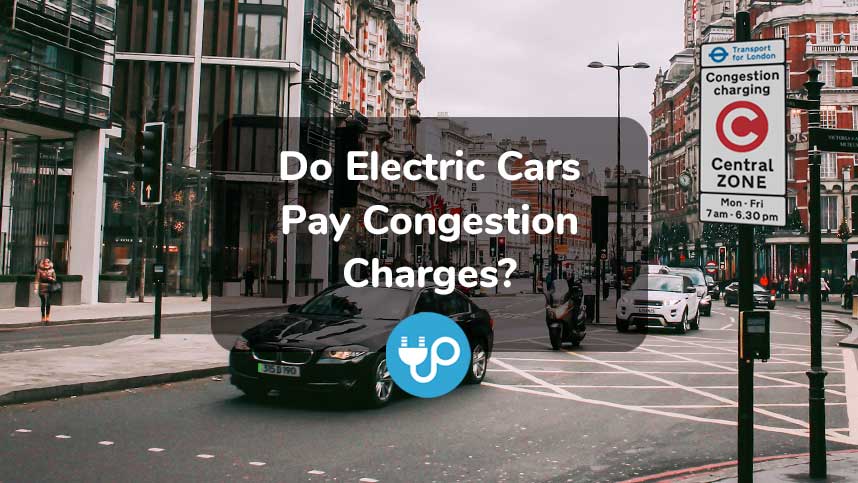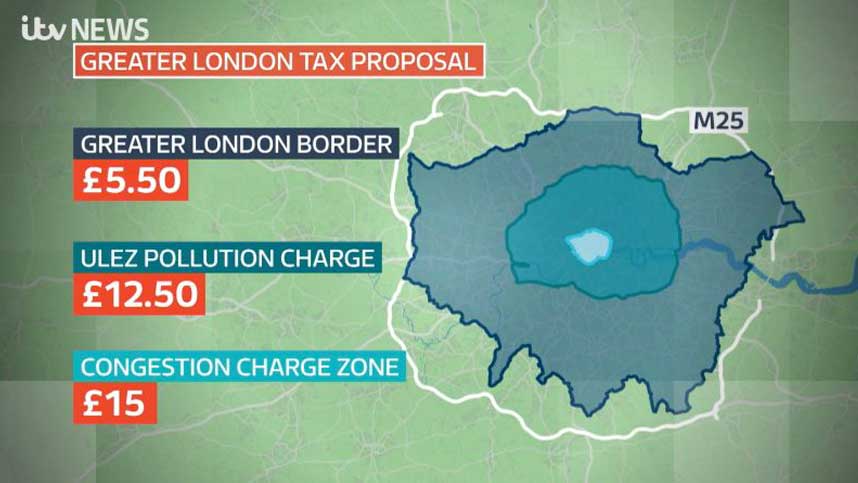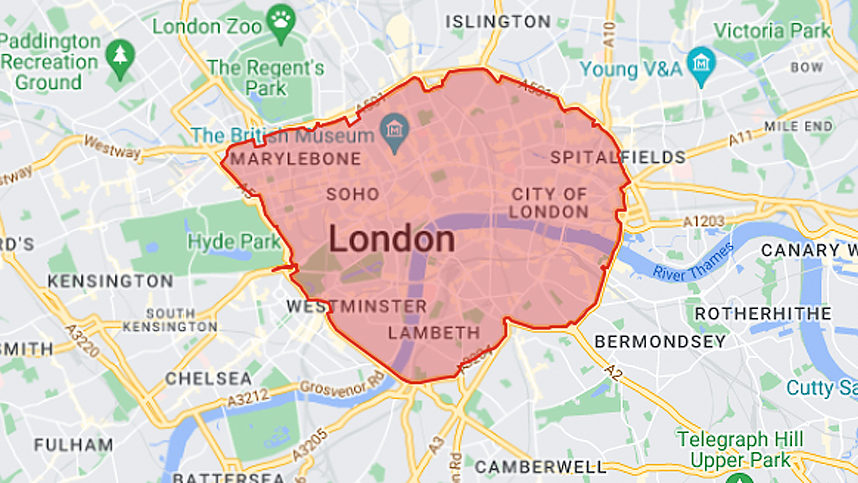
Do Electric Cars Pay Congestion Charges?
Nowadays, driving into central London should be done with caution since it could end up being quite an expensive journey - unless you’re an EV driver!
In case you weren’t aware, there’s a Congestion Charge which applies to those who drive in the UK’s capital.
Whilst there’s some exemptions currently in place, it’s best to be well informed to be able to decide whether it’s worth driving in London or to use alternative means of transport.
Chapters
What is the Congestion Charge?
The London Congestion Charge Zone was introduced back in 2003.
The main aim was to try to reduce the amount of traffic and resulting pollution in the capital.
A flat daily charge was set to those who drive their car in London.
The areas where this congestion charge applied were signposted with a white C within a red circle.
The Congestion Charge is in force 7 days a week.
In fact, if you drive in London between 7am and 6pm from Monday to Friday you would incur the charge.
On weekends and public holidays the charge applies between midday and 6pm.
The Congestion Charge zone covers a smaller area than the recently expanded ULEZ zone.
The latter applies 24 hours a day, all year round except on Christmas day.
ULEZ fees are applied to petrol and diesel cars which fail to meet certain emission standards.
On the other hand, the Congestion Charge applies inside the London inner ring road.
This includes both the City of London and the West End.
How Much is the Congestion Charge?
The Congestion Charge is a flat rate of £15 per day.
If you pay one to three days after the actual date on which your journey occurred, the rate goes up to £17.50.
Should three or more days elapse, a hefty £160 fine is then issued.
This is reduced to £80 if one pays within 14 days.
For those with disabilities, there are however discounts for blue badge holders who do not have to pay the charge.
Furthermore, local residents only have to pay 10% of the standard fee.
Moreover, motorbikes, electric vehicles and hydrogen fuel cell vehicles are exempted.
What Happens If I Drive in a Congestion Charge Zone?
Should you drive in a Congestion Charge Zone then you’ll need to pay the £15 fee if your car has not been registered as being eligible for exemption.
This fee is incurred on a daily basis.
You will not be charged for entering a CCZ multiple times in the same day however.
If your car is eligible for exemption from this charge, it is your responsibility to register it to avoid paying the fee.
So even if you drive a full electric vehicle, do not assume you can simply drive into central London as you please.
You must register your vehicle first to get the exemption!
Are Electric Cars Exempt from Congestion Charges?
Yes, electric car owners are currently exempt from paying the London Congestion Charge.
All vehicles which are zero-emission will benefit from a 100% discount from the charge.
However, you must apply for the Cleaner Vehicle Discount in order to benefit from this exemption.
EV owners cannot simply drive into London without registering firstly.
How to Apply for Congestion Charge Exemption
In order to benefit from the congestion charge exemption, you need to apply for it as you will not be automatically exempted.
To apply for the cleaner vehicle discount you can visit the Transport for London website where you will need to upload photos of the V5C logbook.
A fee of £10 per car applies for each registration.
Once the application is processed, you will be exempt from the congestion charge.
It’s important to apply for the exemption as otherwise you will still incur the congestion charge, despite the fact that your vehicle was eligible for exemption.
Is Electric Car Congestion Charge Exemption Permanent?
The electric car congestion charge exemption unfortunately is not permanent.
In fact, from 25th December 2025 this exemption will no longer apply.
From that date onwards, electric vehicles will still incur the daily £15 congestion fee.
What Cities in the UK Have Congestion Charge Zones?
London is the only city in the UK where there is a congestion charge zone.
However, there are a number of places where low emission zones are set.
Oxford City Council, for instance, currently runs the Zero Emissions Zone.
Electric cars are exempt, whereas a £2 fee per day applies for vehicles that emit under 75g/km.
A £4 charge applies for cars that run on petrol which fail to meet the Euro 4 emissions standard, or diesel vehicles that are not Euro 6 compliant.
Otherwise, all cars are charged at £10 per day in order to enter the zone.
Bristol City also has the Clean Air Zone, and vehicles entering this zone incur a £9 charge if they do not comply with the emissions standards.
You may wish to check other British towns and cities such as Bath, Birmingham, Bradford, Portsmouth and Greater Manchester to verify whether your vehicle is exempted.
How to Tell If You’re in a Congestion Charge Zone
The Congestion Charge Zone (CCZ) is marked by road signs which will alert drivers that they are entering an area where the congestion charge applies.
You need to be aware that you will not be stopped from entering the zone, and nobody will physically approach you.
The CCZ is regulated through automatic number plate recognition cameras and there are CCTV systems in place for this to be possible.
Conclusion
We hope that this overview of the London Congestion Charge has provided you with a clear idea of how to go about driving, or avoiding driving in London.
Remember, no matter what kind of vehicle you own, whether it’s an EV or an ICE, always check your eligibility before setting off.
Blog Archive
- 25 New Electric Car Brands on UK Roads
- General Election 2024: Major Party Net Zero Policies Compared
- Electric Car Service Costs vs ICE
- CHAdeMO vs CCS – What’s the Difference?
- Mr EV Reviews Joosup
- What is the ZEV Mandate?
- Spring 2024 Budget: No VAT Rate Cut on Public EV Charging
- What is Regenerative Braking?
- Joosup Powers Up Inaugural Everything Electric Show
- Do Electric Cars Pay Congestion Charges?
- The UK Government is Failing Its Own Targets – EV Charger Sharing Can Plug the Gap!
- Do Electric Cars Have Gears?
- Is EV Battery Recycling Possible?
- Christmas Commuting – How to Avoid EV Charge Rage
- Electric Car Tyres – All You Need to Know
- What Price Should I Rent My EV Charger Out?
- Are Electric Cars Cheaper to Run?
- Do Electric Cars Use Oil?
- 70% of UK Councils Have No On-Street EV Charging Plans
- Joosup + waEV-Charge: Electrifying the Future Together!



